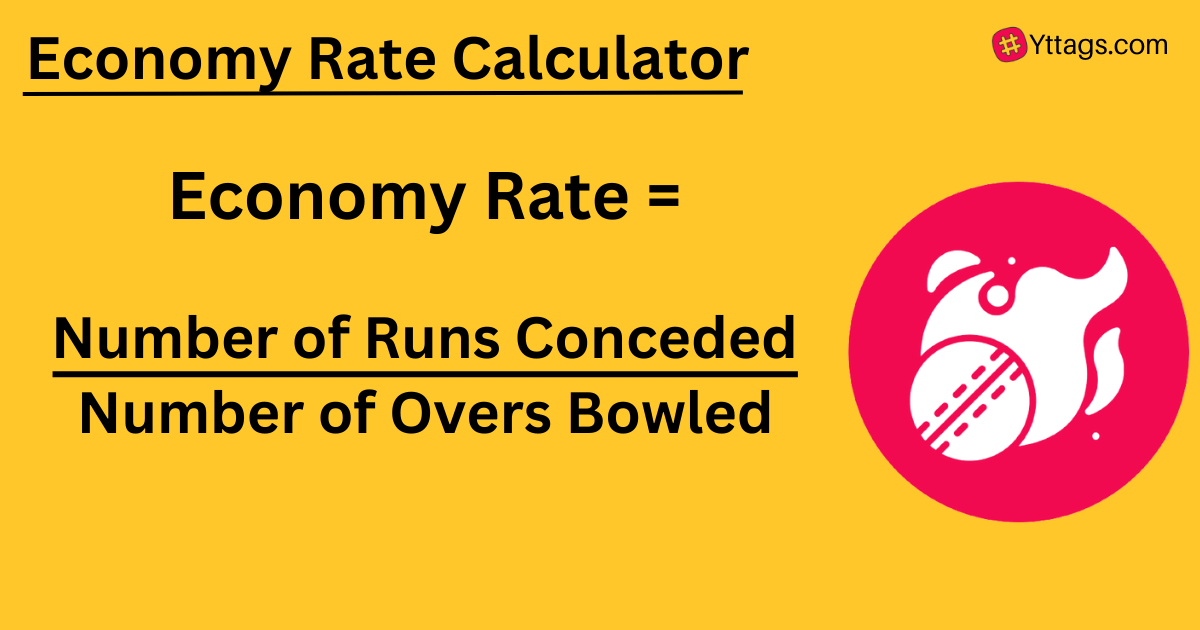Economy Rate Calculator
Economy Rate (cricket) Calculator To find the bowling average and strike rate to judge the overall performance of a cricket bowler.
Number of Runs Conceded
Number of Overs Bowled
If you use this great tool then please comment and/or like this page.
Average Rating: Tool Views: 372
Average Rating: Tool Views: 372
Subscribe for Latest Tools
How to use this Economy Rate Calculator Tool?
How to use Yttags's Economy Rate Calculator?
- Step 1: Select the Tool

- Step 2: Enter The Number of Runs Conceded & Number of Overs Bowled And Click On The Calculate Button.

- Step 3: Check Your Economy Rate Calculator Result

If you want to link to Economy Rate Calculator page, please use the codes provided below!

FAQs for Economy Rate Calculator
What is a Economy Rate Calculator?
An Economy Rate Calculator is a tool used in cricket to determine a bowler's economy rate, which measures how efficiently they concede runs while bowling. It is calculated as the average number of runs given up by the bowler per over bowled.
How to calculate inflation rate?
To calculate the inflation rate, subtract the previous year's Consumer Price Index (CPI) from the current year's CPI, divide by the previous year's CPI, and multiply by 100.
How are advanced economies classified?
Advanced economies are typically classified based on their high income levels, industrialization, developed infrastructure, and other socioeconomic indicators, such as GDP per capita, human development, and access to advanced technologies and services.
How do we measure the price level of an economy?
The price level of an economy is typically measured using an index, such as the Consumer Price Index (CPI) or the Producer Price Index (PPI), which tracks the average change in prices for a basket of goods and services over time.
What factors affect prices?
Prices can be influenced by factors such as supply and demand, production costs, inflation, government policies, market competition, and external events like natural disasters or geopolitical conflicts.